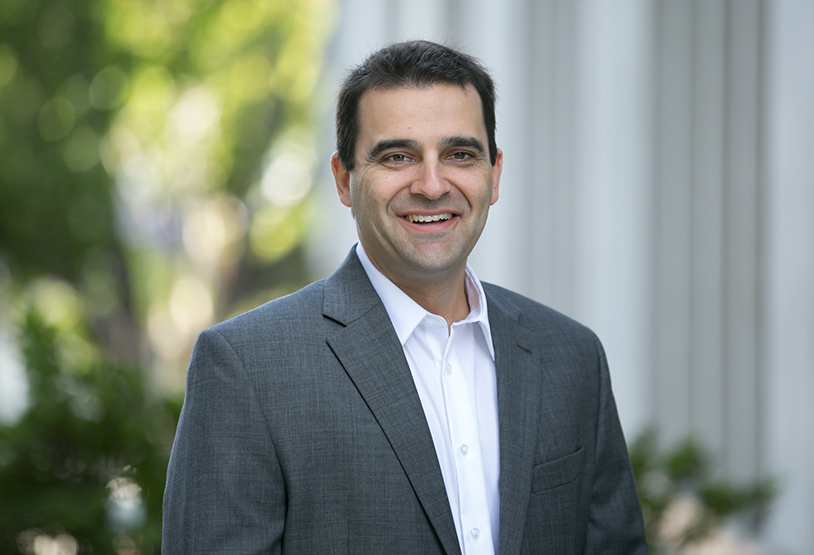By Rebecca Fabisch Miller, Executive Vice President and Commercial Banking Director, River City Bank

With a still-vibrant level of activity and reasons for optimism, Northern California’s commercial contractors remain healthy and strong. Many contractors in the region enjoy a strong backlog in the near-to-medium term.
But longer term, questions remain, as they always will in this cyclical – if not sometimes volatile – industry. Faced with fluctuating economic conditions, continued rising interest rates, inflation, a tightening labor market, and unpredictable volatility in the coming years, planning for the more-distant future remains a challenge.
The regional construction industry, estimated at $9.1 billion in 2023 and expected to increase next year, is still likely to fall short of the levels it reached in 2021, according to recent projections. That makes strategic planning difficult, especially for contractors who must weigh the capital costs and minimum level of liquidity they should maintain on their balance sheet.
As an experienced banker with a diverse portfolio of contractor clients at River City Bank, I know the industry has been here before. I’ve seen up close what works, and what doesn’t in positive but uncertain times. And with the western part of the U.S. the only area in the nation to see an increase in construction backlogs this year, I’m also optimistic in the short term.
Still, there are several areas that commercial contractors should prioritize to maximize opportunities and minimize unexpected risks in the long term.
Leveraging cash flow
For the first time in decades, deposits can generate additional revenue. If you’re a commercial contractor with funds sitting in the bank, you can finally earn a meaningful return on your deposits. In fact, River City Bank has several programs that allow its clients to maximize their deposits, while ensuring that up to $150 million has full FDIC insurance. Money market accounts and certificates of deposit can deliver especially attractive interest rates these days. Even retention accounts can generate sizeable income.
Keep in mind, though, that with interest rates rising, commercial contractors should also be careful with capital expenditures. Take care to manage excess cash carefully and avoid incurring unnecessary debt in a period of economic flux. Now is the time to consider renting and/or incurring short-term leases if new equipment is needed to work through the current level of backlog.
Develop a hiring pipeline
Today’s economic environment is unusual in that it is marked by low unemployment. This is critical in the construction industry, where the unemployment rate has fallen below 4% and hiring skilled workers is a challenge.
It’s important to develop a hiring pipeline so you don’t end up overpaying for talent as you compete for new employees. You might consider an example from another industry. At River City Bank, for instance, we recruit at university job fairs and offer a voluntary “banking academy” to teach commercial banking to college students and develop the next generation of talent. We also have a robust summer internship program that often results in a job offer.
That approach can work in any sector. The Sacramento Region Builders Exchange, for example, has similar efforts to entice new people into skilled trades. Contractors would be smart to invest in youth programs and leadership training now to build for the future. One potential source of workers is the new charter high school for the trades in Sacramento, which opened this year.
Plan for succession
Nobody wants to work forever. Contractors need to plan for succession, so when they do turn over the company to new owners, the company doesn’t miss a beat or a client. Some of the best transitions I have witnessed had a succession plan in place as early as 15 years prior to the sale to the new generation of owners.
Contractors need to identify the next generation, then coach and mentor them for their respective future leadership roles. Mentorship programs help create an environment of sharing years of knowledge from the folks about to retire with the newly-hired, younger employees.
As part of this planning, companies should work with their bank early to figure out an appropriate debt structure to facilitate a company sale. Owners don’t want to walk away from something they’ve spent years building without adequate compensation, but they also need to leave behind something of value that can survive.
Your bank is your partner
Many commercial contractors don’t think of using their banker as a true strategic partner, the same way they would with their surety, CPA, and attorney. But they should. If you’re changing your corporate structure, for example, you call your lawyer. Similarly, any operational strategy you pursue will affect your finances. When that happens, you should talk to your bank.
At River City Bank, we have the experience and a portfolio of relationships large enough that we’ve seen the pitfalls and benefits of many strategic actions. Among the many things we’ve learned is that it’s important to stick to what you know. We’ve seen companies bid on larger jobs or those outside of their normal course of work only to lose money because they lacked expertise.
At our bank, we also focus on what we do best – and that is work with you to find solutions for your business. The construction industry is challenging enough. It’s important to find a partner that can help bring stability and success for years to come.
To learn more about our commitment to nonprofit organizations in our communities, or to inquire how we might provide services that support your mission, please visit us here or contact one of our relationship managers at (916) 567-2899.
With assets of over $4.3 billion, River City Bank is the largest independent and locally owned and managed bank in the Sacramento region. With a 50-year track record of success, eight branches, an office in San Francisco, and a presence in Southern California, the bank is rated as one of the strongest in the country.
MEMBER FDIC
Rebecca Fabisch Miller has spent her 30-year commercial banking career in Sacramento, working as a relationship manager and regional director at several major banks. She earned her MBA from the University of California, Davis, and has an undergraduate degree in international business and marketing from California State University, Sacramento. She is the treasurer for the California Forest Foundation and has been involved with many local charities.



